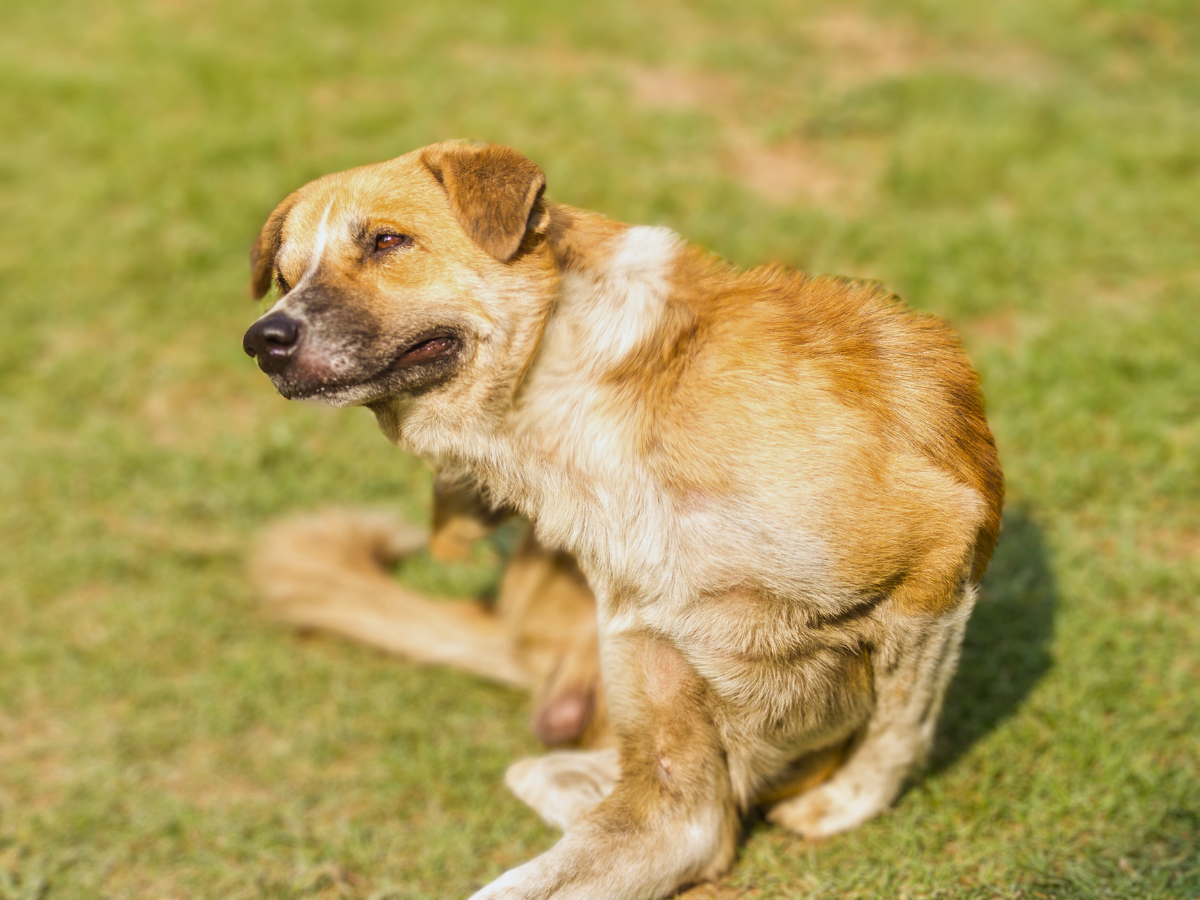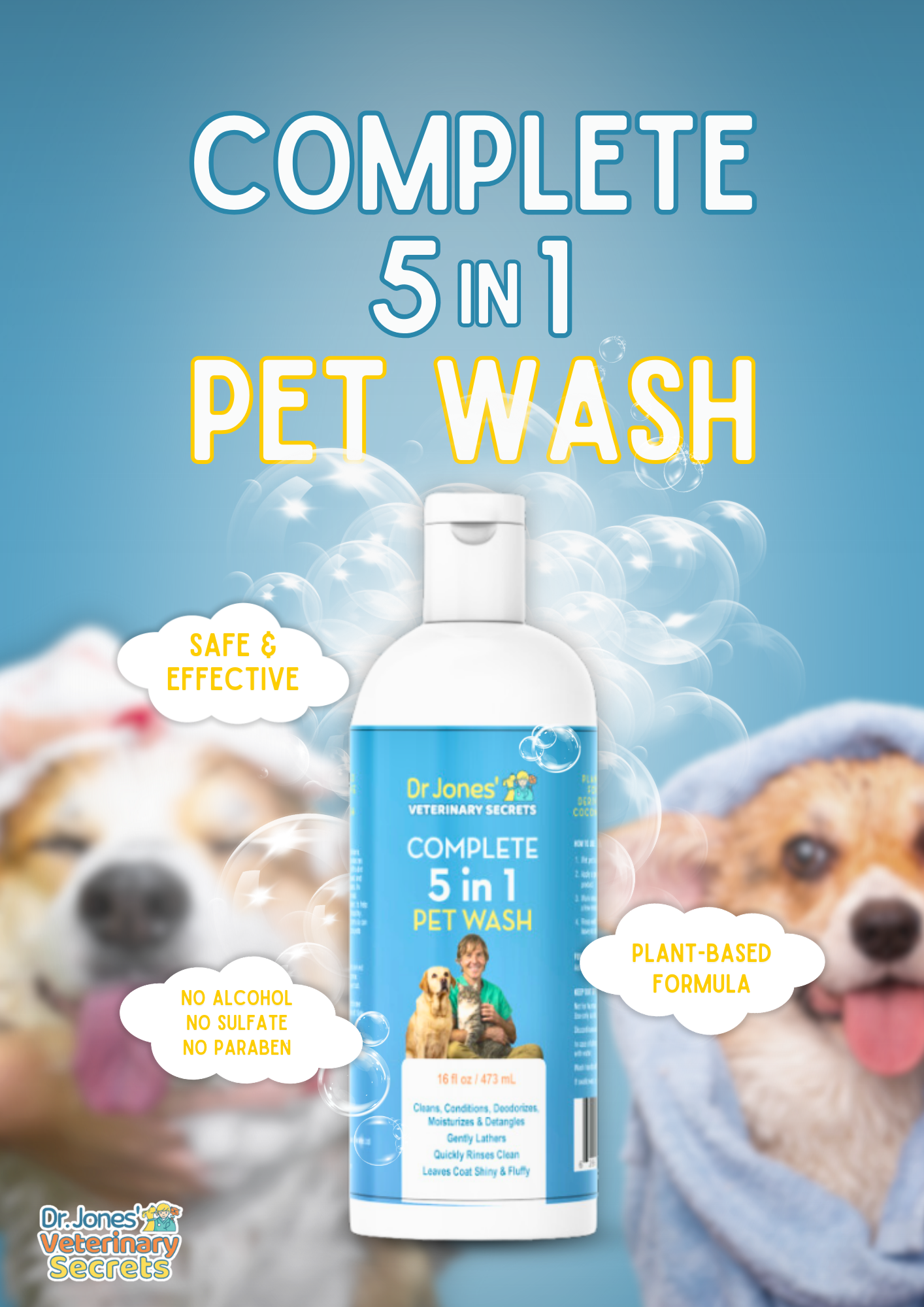Topical remedies that *really* STOP the itch

Scratch… .scratch… .scratch… this must be SO difficult to cope with: both for our pets with allergies, and their owners 🙁
Fortunately there are many holistic options, but so often we forget about the basics.
Your pet needs well hydrated skin with a STRONG skin barrier, and you need to keep the allergens washed off.
A simple and effective way to do this is with a quality, pet specific shampoo that is designed to be balanced for your dog’s skin pH, and add moisture BACK into the skin.
Dr. Jones’ Complete 5 in 1 Pet Wash is an all-natural shampoo and conditioner that will moisturize and lock in water, being an awesome option for any allergic pet.

Atopic Dermatitis (Environmental Allergy), and the best topical solutions
In the past it was explained as being primarily due to allergens that were inhaled; now the belief is that these allergens are absorbed in the skin, then cause your dog’s immune system to respond inappropriately.
The symptoms
Scratching, hair loss, odor, ear infections, paw licking, anal licking, redness (especially groin), blackening and thickening of skin.
One of the big principles of skin disease, is keeping the skin hydrated, and having a strong skin barrier. Skin that is lacking moisture is prone to damage, the allergens penetrate, and then we have the ITCH/SCRATCH cycle.
TOPICAL SOLUTIONS that CAN HELP!
- FEET WASHING Regularly washing of your dog’s paws after they come in from being outside is one of the best ways to decrease the itching; this washes off the outdoor allergens. You can use a damp cloth or put your pup in the bath.
-
HERBAL CREAMS There are a few herbs to consider topically: Licorice gel, chamomile cream, and topical burdock. One double-blind study compared a 1% and 2% licorice gel compared to a placebo gel for eczema. After two weeks, both the 1% and 2% licorice gels were more effective than the placebo gel. There are a few herbs to consider topically: Licorice gel, chamomile cream, and topical burdock. One double-blind study compared a 1% and 2% licorice gel compared to a placebo gel for eczema. After two weeks, both the 1% and 2% licorice gels were more effective than the placebo gel.
- OTC ANTI-ITCH CREAM.1% HYDROCORTISONE is safe to use topically on our pets with inflamed skin. Apply a small layer over top of the affected area twice daily for 14 days.
-
PROPOLIS: Bee Glue for Dogs and Cats Propolis (known as Bee Glue) is a resinous, waxy substance that bees create by mixing their saliva with beeswax. Propolis also has antimicrobial properties and may protect bees from pathogens. Scientists have identified more than 300 separate compounds in propolis. Propolis also contains polyphenols, such as flavonoids, which are a type of antioxidant.
Propolis spray can be applied twice daily to inflamed skin. Also great for Hot Spots!
- TOPICAL FAT These are called ceramides, and have have been developed with the goal of improving epidermal barrier function. The best Natural Ceramide is SUNFLOWER OIL. Dose: 1/2 teaspoon/10lbs daily. It may be more effective if applied topically as well (ie apply 5-10 drops over the spine, similar to the monthly flea control meds). Do this daily for 30 days and assess if it is helping
-
STINKY Dog Shampoo Remedy 1 cup of green tea, 2 tablespoons of castile soap, 10 drops lavender essential oil, 2 tablespoons of ACV.
The green tea is antibacterial, the ACV is effective for yeast, the salt is antibacterial and will also take down some of the swelling, and the lavender oil offers anti-yeast and some antihistamine qualities to help with the allergy.
- SELSUN BLUE Botanical Shampoo (has essential oils), both great for Yeast. Leave on for 10 minutes, rinse well, at least once per week.
- Dr Jones’ NEW Simple and Natural DIY Dog Allergy Cream: It really Stops Itching! Combine 3 tablespoons of coconut oil, 2 tablespoons each of castor oil and sunflower oil, 1 tablespoon of shea butter, and 2 tablespoons of beeswax into a pot and gently warm until they melt into a liquid form. Then pour the mixture into a mason jar and let it cool in the fridge before applying to the affected skin area twice daily.
- PET SHAMPOO The important principle is to have a pH balanced shampoo that WON’T dry out your pet’s skin removing the natural protective oils, while at the same time removing allergens. Natural oil based shampoos WITHOUT alcohol are better, especially if they also contain conditioning agents to keep the skin hydrated.
P.S. In veterinary practice we didn’t pay enough attention to the simple basics of keeping the skin hydrated and strong. So often the 1st thing we jumped to was steroids, or some NEW drug to just STOP the itch.
P.P.S. A quality shampoo can make a HUGE difference.

Dr. Jones using your DIY allergy cream :
Will that make my dog’s hair oily? I have a long hair Shih Tzu